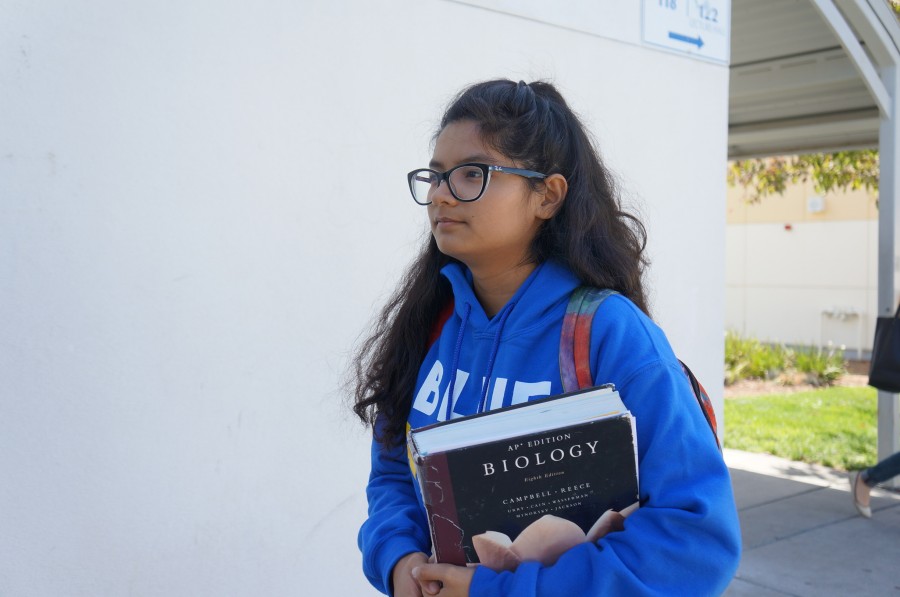Old, worn out textbooks push back student learning
Senior Saira Singh carries her old AP Biology textbook to class daily.
Editor’s Note: In the originally-posted version of the following story, the impact of textbook shortages on teachers’ curriculum was imprecisely stated, and teacher Christine Byerley was quoted as saying “or” when she actually said “and”. Both errors have been corrected in the revised version below.
Sophomore Hamza Shakoor was careful to not damage his already fragile AP Euro textbook as he pulled it from his backpack at the beginning of class. As he flipped through the book for his notes, two pages came fluttering out.
Amid chuckles from his peers and a concerned look from his teacher, he reached to grab the two ripped pages now lying on the floor.
Shakoor is not the first student to experience issues with worn textbooks, or even worse, no textbooks at all.
SCHS’s textbook library is filled with books that have sometimes have been used for almost a decade– causing issues with the textbooks students need to use every day.
“We’re just using textbooks far too long,” librarian Seana Shelby said. “Most textbooks are replaced every six to seven years but since budgets fell out and the state no longer had the money to give to districts, we’ve gone more like ten years for some.”
With each year, many textbooks are lost or too damaged to be reused, and sometimes there are simply not enough to accommodate growing class sizes. This leaves classes such as World History, Biology and Calculus to rely on class sets rather than supplying each student with a textbook of their own.
“Having a class set of textbooks is great for convenience sake,” said sophomore Jared Isobe who is taking World History this year, “but it doesn’t allow students to learn at their own pace and prevents learning outside of the classroom as well as studying.”
Teachers often modify the in-class curriculum, as well, in order to work with the limited number of usable textbooks.
“We simply don’t have enough textbooks to have every kid bring one to class and home, so I build all of my assignments and work so that it can be completed inside of class,” World History teacher Christine Byerley said.
To combat the textbook shortage,, some teachers have opened online textbook accounts for students to use. The online textbooks, offered in classes such as Biology, Algebra, and World History, add resources such as interactive learning material, but can still be hit or miss in terms of accessibility.
“I tried using my online textbooks for Algebra,” sophomore Hannah Aldor said, “but for biology it didn’t work. I couldn’t log on. They said the login was outdated.”


